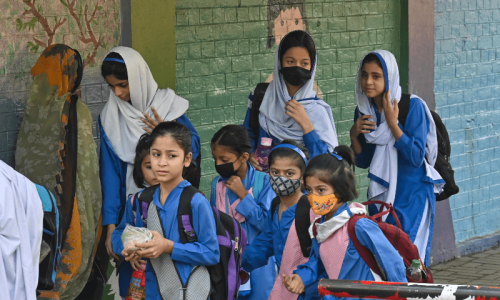On December 14, 1971, Islamabad was optimistic and puzzled in equal measure. Officials waited by their telephone sets. News from Dhaka was discouraging. The Pakistani political leadership stayed put, dejected. The economy showed little sign of recovery as the war went on. At the UN, foreign minister Bhutto was perplexed, following developments in Dhaka.
Meanwhile, the Soviet leadership contacted the United States and told Nixon that he should stress upon Pakistan that it should “embark on the path towards political settlement in East Pakistan on the basis which is now rather clear”, perhaps suggesting that since the Indian army was about to capture Dhaka, Pakistan should accept the political reality. It was in this context that it vetoed the US-sponsored resolution for the third time aimed at bringing ceasefire; the Soviets did so in order to give India the time to implement its plan.
As the military thrust against Dhaka mounted, diplomatic efforts also mounted but with little hope. Responding to the Soviet proposal, President Yahya wrote to Nixon, “The Russian proposal about the ceasefire, withdrawal and negotiations has now clearly been demonstrated to have been only a hoax as passage of time is clearly playing in the hands of Russians. We are convinced that after acquiring East Pakistan, they will let the Indians turn their might single-mindedly against West Pakistan for which they have already begun to equip the Indians”.
In his letter Yahya wanted the US to go beyond mere warnings and demarches to show its determination to punish aggression across international borders to have any effect on the Soviet Union and India. “The Seventh Fleet does not only have to come to our shores but also to relieve certain pressures which we by ourselves were not in a position to cope with,” he wrote.
Meanwhile, Yahaya acknowledged that the situation in East Pakistan had hopelessly deteriorated. In Islamabad he showed the report of M A Malik sent on December 13 that conditions were chaotic. As it became irretrievable, and for over-riding humanitarian reasons, the Pakistan President had given widest possible latitude to Bhutto at the UN to effect a ceasefire and troop withdrawal.
Nixon had already sent messages to the Indian government not to take up their plans against West Pakistan, yet Yahya had certain apprehensions especially after the build-up of Indian troops and action against Karachi and other parts of West Pakistan. The next day, President Brezhnev wrote to Nixon assuring him that there would be no all-out military action against the Western wing.
December was crucial in deciding the fate of East Pakistan. Indian military action was in full throttle. Sensing a hopeless situation the armed activists of the pro-Pakistan Al Shams and Al Badar reportedly picked up some 100 physicians, professors, writers and engineers in Dhaka and killed them. The day is marked on the Bangladesh calendar as the Day of the martyred intellectual. They were buried in a mass grave. This created a scar that would never be healed.
The atrocity was followed by the bombing of the Indian air force on Governor’s House, forcing the ministers and the governor to seek refuge with the International Red Cross. The situation was now beyond all control.
At this juncture, Indian, de-facto Bangladeshi and American officials were examining the fallout of the imminent fall of Dhaka. Refugees were the most important humanitarian problem. US Ambassador George Bush (Senior) (later US President) had spoken to Indian Foreign Minister Swaran Singh, who among other issues mentioned the status of Biharis.
In his opinion, “India is very much aware of the need to protect Biharis… [it] will establish safe areas under Indian control and assist in repatriation to West Pakistan if they desire.” This was perhaps not acceptable to the US which “was still attempting to see whether UN action could be useful.”
As far as the refugee problem was concerned, India, Pakistan and Bangladesh had separate claims. India claimed there were some 100,000 Bengalis in West Pakistan who should be repatriated and Pakistan should take some 600,000 non-Bengali Muslims from Bangladesh who may want to go to West Pakistan.
Pakistan said that there were 260,000 Biharis in Bangladesh who should be considered Bangladeshis now and Dhaka must retain them as they were their citizens. This issue did not attract much importance when the war was still on but it was on the agenda to be taken up as the parties sat for negotiations.
Meanwhile, the Indian troops and Mukti Bahini were advancing quickly and by December 14, the efforts for a ceasefire continued without bearing any fruit. Bhutto had made a request for a special UN Council session for the next day.













































Dear visitor, the comments section is undergoing an overhaul and will return soon.